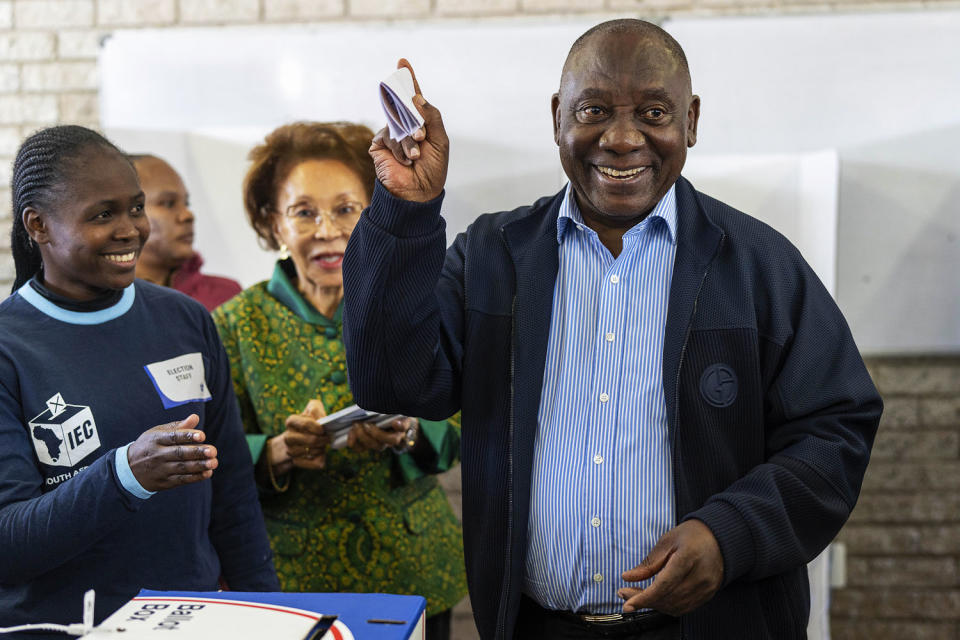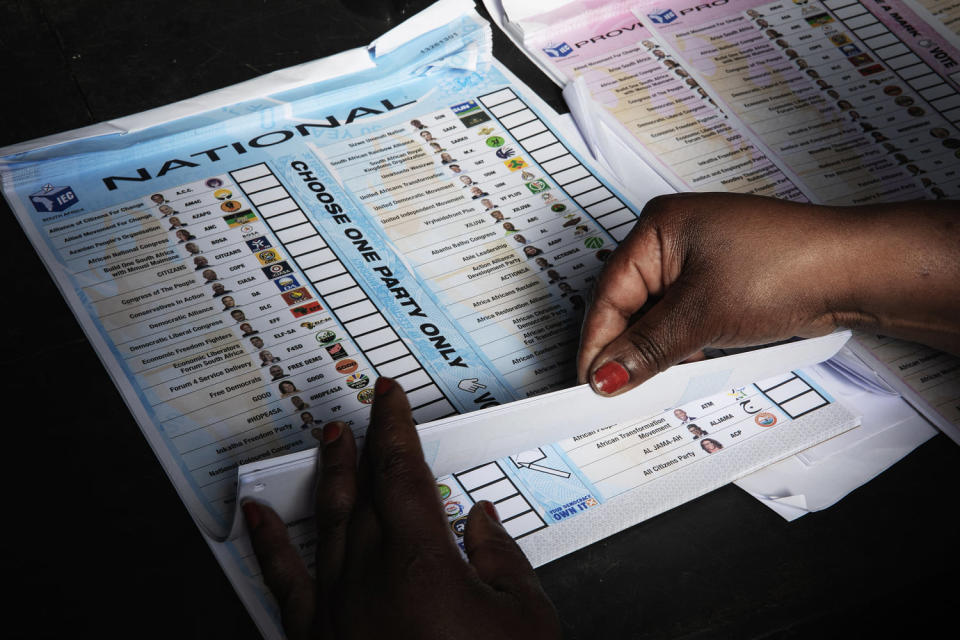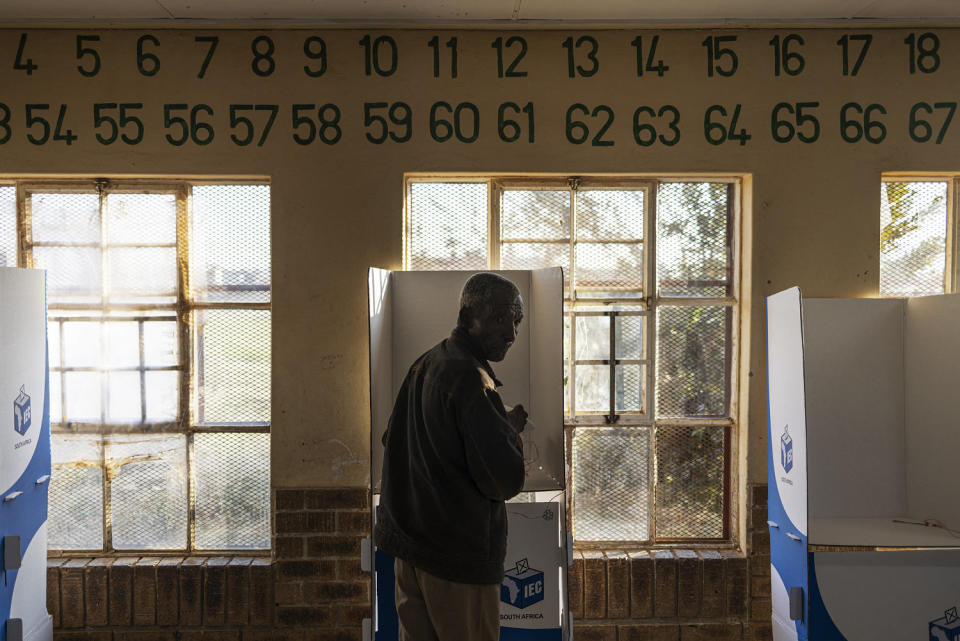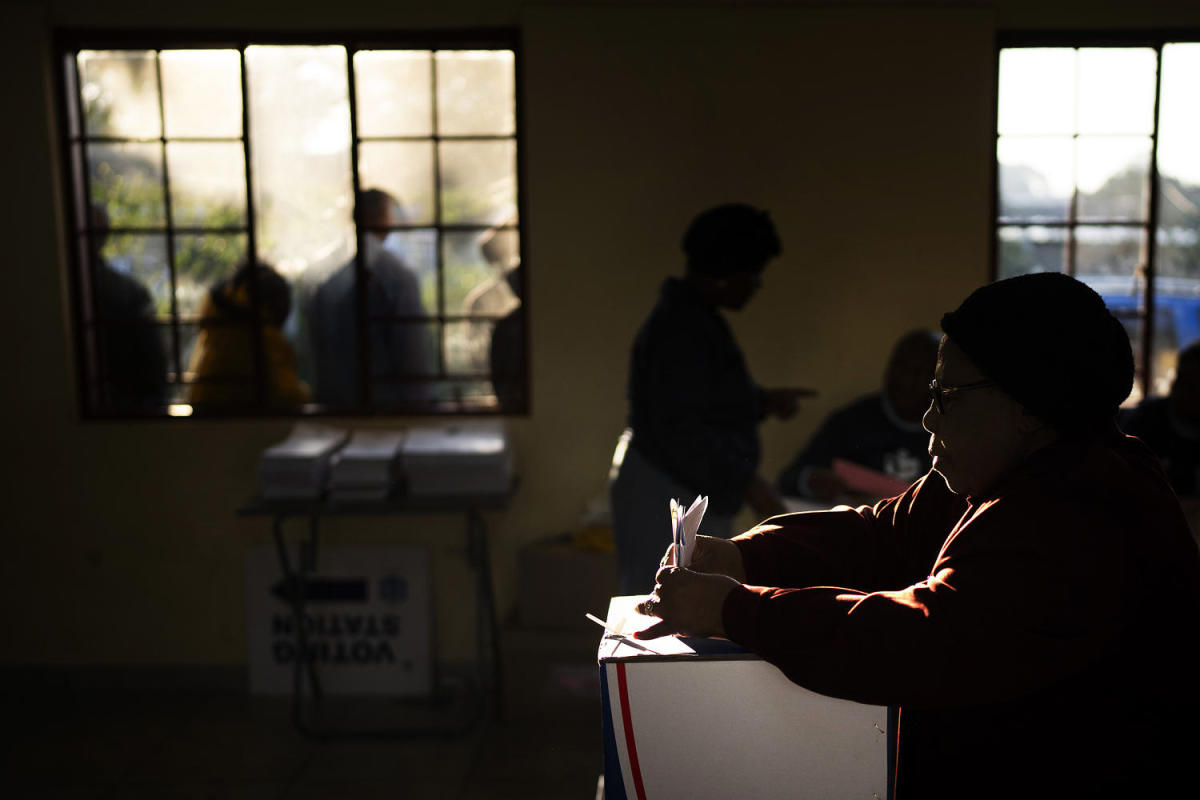For 3 years, power in South Africa has actually had a three-letter name: the ANC, or the African National Congress. The political celebration as soon as led by Nelson Mandela has actually been an effective sign of freedom from white minority guideline, bring in commitment from countless South Africans who keep in mind life under apartheid.
However after winning election after election for thirty years, the ANC led by President Cyril Ramaphosa is now facing its greatest obstacle because taking power in 1994, possibly marking a watershed minute for among Africa’s most effective countries and a significant test for South Africa’s still-fledgling democracy.
Ballot ahead of Wednesday’s election reveals that for the very first time, the ANC might fall listed below 50% of the vote. Although the celebration would still likely wind up eventually managing the presidency, it would be required to participate in a union with smaller sized celebrations who blame the ANC’s present instructions for the country’s extensive issues.

“It’s a big election in that regard,” stated Christopher Vandome, senior research study fellow with the Chatham Home’s Africa Program. “A great deal of opposition is seeing that this is possibly the very first chance that they’ve had for thirty years for a more pluralistic politics.”
Here, NBC News has a look at what might be an essential election.
Why is the ANC having a hard time?
In the years after apartheid ended with the very first complimentary, democratic election in 1994, numerous citizens credited the ANC with enhancing life for South Africans — particularly for the Black bulk that got standard rights. International sanctions that had actually obstructed the economy disappeared, and the gdp rose.
“Individuals seemed like things were improving,” Vandome stated. “For the last 10 to 15 years, that’s plateaued, therefore there has actually been a genuine increase in aggravation with the federal government.”
It’s simple to see why. A joblessness rate hovering around 32% — the world’s greatest — has actually pestered South Africa’s economy and struck more youthful employees particularly hard. Earnings inequality, particularly in between whites and Black individuals, is relentless; 2 years back, the World Bank ranked South Africa as the most unequal nation on the planet.
Furthermore, an energy crisis has actually activated rolling blackouts throughout the country that have actually obstructed companies. And numerous citizens have actually stated they blame the ANC and its succeeding federal governments for stopping working to control runaway violent criminal offense rates and corruption.
Then there’s the concern of race, still an uncomfortable, universal background to South Africa’s politics.
“We haven’t actually went beyond the concern of race as a nation,” stated Hlengiwe Ndlovu, senior speaker at Johannesburg’s Wits School of Governance. “And this continues to play itself out, particularly when youths are taking a look at the opposition celebrations and attempting to choose which political celebration can in fact represent their interests.”
Who’s challenging the ANC?
This year, a record 51 opposition celebrations are on the nationwide tally trying to unseat the ANC. A few of them are brand-new celebrations and some are campaigning on particular concerns like closing the borders, others attracting particular ethnic groups.
According to the Electoral Commission of South Africa, 27.79 million South Africans ages 18 and older have actually signed up for the elections this year, up from 26.74 million in 2019.


The Democratic Alliance, the second-biggest vote-getter in the last election in 2019, is marketing on a platform of saving South Africa from extensive corruption and repairing the economy. Urging individuals to vote the ANC out to “rescue” the nation, celebration leader John Steenhuisen has actually called it “South Africa’s many substantial election in post-democratic history.”
Yet, the celebration has actually likewise had problem with the understanding amongst numerous that it’s mainly the celebration of white citizens.
Another obstacle to the ANC originates from the Economic Flexibility Fighters, formed about a years back. Its core base consists of youths, consisting of numerous Black college student worried about racial inequality. Ballot at around 11% before Wednesday’s election, its leader Julius Malema has actually slammed the ANC’s platform for being not almost enthusiastic enough.
Amongst the newbies to the scene is uMkhonto weSizwe, or “spear of the country,” likewise referred to as the MK celebration. Called after the ANC’s previous paramilitary wing, it was formed in 2015 by previous South African President Jacob Zuma, as a breakaway celebration from the ANC.
Although the Supreme Court has actually ruled that Zuma cannot himself run for workplace due to the fact that of a previous criminal conviction for contempt of court, his face will appear on the tally beside his celebration.
What occurs if the ANC falls listed below 50%?
In South Africa’s democracy of more than 60 million individuals, citizens don’t vote straight for president, however rather choose which celebration they wish to represent them in the parliament, referred to as the National Assembly. The 400 members of the National Assembly then select the president.
If there’s no straight-out bulk, the greatest vote-getter — most likely the ANC — would be required to work out with several smaller sized celebrations to form a union that would put them over 50% of seats.


That type of power-sharing might make it more complex to deal with a few of South Africa’s most difficult issues, and current efforts at union federal governments at the regional level in South Africa have actually shown dreadful. It might likewise unlock to even more political competitors in the future, with citizens progressively understanding that they have practical options beyond the ANC.
How is the generational divide playing out?
Generally, older citizens have actually been most likely to stay faithful to the ANC, Hlengiwe and other South African political specialists stated, associating that in part to fond memories about Mandela and the memory of freedom from apartheid.
It’s the more youthful population, disproportionately impacted by sky-high joblessness, whose ballot power most threatens the ANC. South African federal government stats reveal approximately 42% of signed up citizens are under the age of 40.
“For an older generation, you have a relationship that is one where individuals wouldn’t always vote versus the ANC, however they would keep their vote,” Vandome of Chatham Home stated. “For a more youthful generation, it’s not rather like that. I believe that there are those who want to elect options.”
This short article was initially released on NBCNews.com
